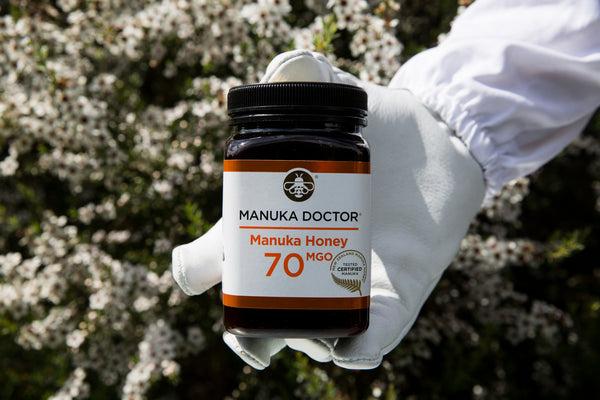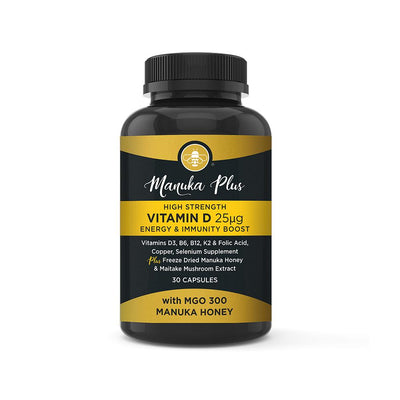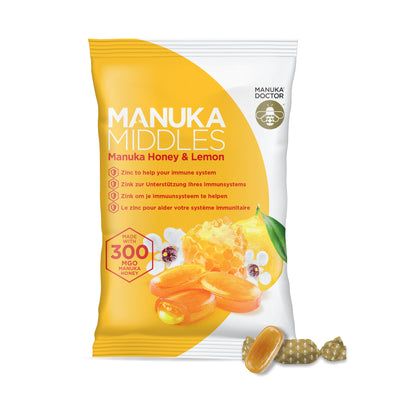A cough can be one of the most troublesome symptoms to tackle once seasonal cold and flu viruses start doing the rounds. The sneezing, runny nose and sore throat usually clear within a few days – but you might be stuck with a cough for weeks afterwards. Uncomfortable, irritating, inconvenient and sometimes even painful, a cough can seriously impact on your quality of life – let’s face it, nobody wants to be hacking away in the theatre or in an important work meeting.
A cough is also likely to disturb your sleep at night, setting up a frustrating vicious cycle, since restorative sleep is one of the best ways to support your immune system, shake off the remnants of a bug and get your wellbeing back on track.1
So it’s not surprising lots of us run to the pharmacist for cough remedies – or even beg the GP for antibiotics. But the latest evidence shows reaching for pharmaceutical help is, at best, a waste of money - and may even leave you feeling worse.2
So what exactly is a cough? When you’re awake at night, cursing your cough for starting up every time you try to lie down, you probably don’t stop to think your body’s actually doing something useful – actually, essential. A cough is caused by a reflex action to clear your airways of mucus - for example, when you have a cold - or to blitz away irritants such as dust. There are two main types:
- A chesty cough, which produces lots of thick mucus called phlegm to help clear airways. Your cough will feel ‘wet’ and you’ll find yourself bringing up phlegm.
- A dry cough, which doesn’t produce any mucus. Typically, it feels maddeningly tickly and may quickly lead to a sore, dry throat.
Visit any chemist and you’ll find shelves packed with solutions to both types of cough – around the world, a whopping £3.1bn is spent on cough remedies every year. But a recent review of studies published in the British Journal of General Practice found no benefits to taking over-the-counter cough medicines. Worse, 14 per cent of people who used them experienced unwanted side effects, including nausea, headache, chest pain and even – yep – a worsening cough.3 Not quite what you want from your bottle of cough mixture...

The latest findings follow a warning against using antibiotics for coughs from Public Health England, in line with a new draft guideline from NICE, the organisation that publishes advice for healthcare professionals and the public. The draft guideline cautions that although patients may pressure GPs for antibiotics to blast away coughs, these medicines won’t help in most cases – and prescribing them may be contributing to the global problem of antibiotic resistance.4
Fortunately, there’s a super-simple remedy experts agree can help - and it’s probably the one your mother told you about. Honey can effectively soothe cough symptoms, according to Dr Tessa Lewis, GP and chair of the NICE antimicrobial prescribing guideline group.5 It could help your children, too - one study found a spoonful of honey at night was more effective than many over-the-counter medicines at soothing children’s coughs and helping them sleep better (although it should never be given to babies under the age of one because of the risk of botulism).6
Why choose Manuka Honey for coughs?
And to really boost your wellbeing, why not reach for Manuka Honey? While all honey has some antibacterial qualities, Manuka Honey is something of a honey superhero. It contains a powerful antimicrobial substance called methylglyoxal (MGO), along with other compounds, which help kill off certain bacteria. Some early research suggests Manuka Honey may have antiviral effects, too, although more studies are needed.7
You could try Manuka Honey in a hot drink, the way your mother told you. Simply squeeze half a lemon into warm water and add one to two teaspoons of honey.8 You could also add some grated ginger. The benefits of taking honey this way? Research from Cardiff University found hot, strong-tasting drinks can help ease coughs because they encourage the production of saliva and airway mucus secretions, your body’s very own throat-soothers.9
If you're on the go, Manuka Honey Lozenges could give you the same benefits. Our Manuka Middles contain a runny honey centre PLUS added natural vitamins to help support your immune system. Perfect to keep in your pocket or your bag during the Winter months.
Of course, you don’t have to wait until you have a cough to enjoy a sweet, spicy hot drink – it’s important to drink plenty of fluids every day, and lots of people swear by Manuka Honey for staying on top of their wellbeing. So you could experiment with all sorts of honey and lemon variations (try adding ginger, cinnamon and a dash of apple cider vinegar to Manuka Honey and lemon drinks – deliciously warming on a cold day).
A word of caution about coughs, though – while most don’t need a doctor’s attention, you should always see your GP if a cough lasts longer than three weeks, is very severe or quickly gets worse, you have any breathing difficulties, chest pain or swollen glands in your neck, you’re losing weight for no obvious reason or you have a weakened immune system. These can all be signs of a more serious underlying cause.10




